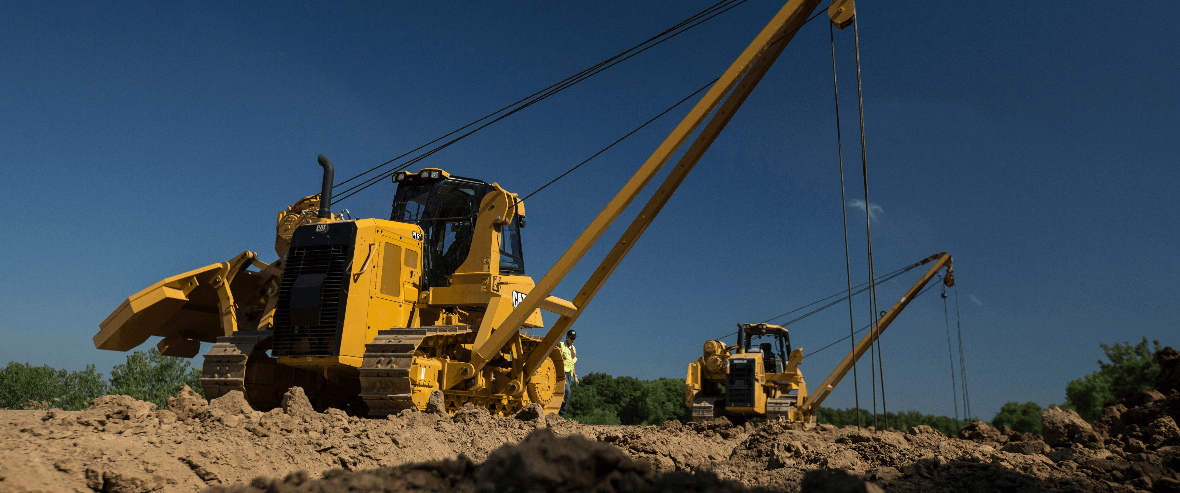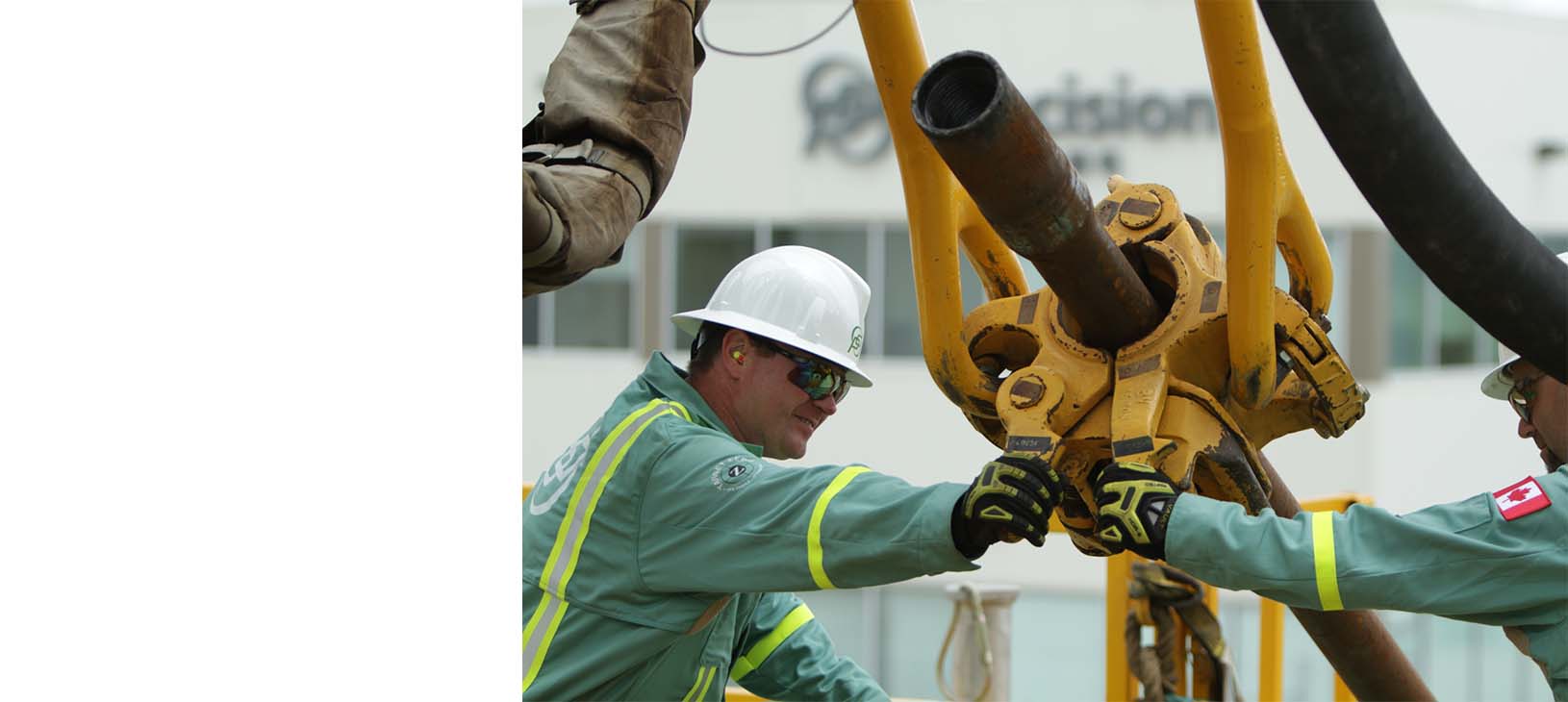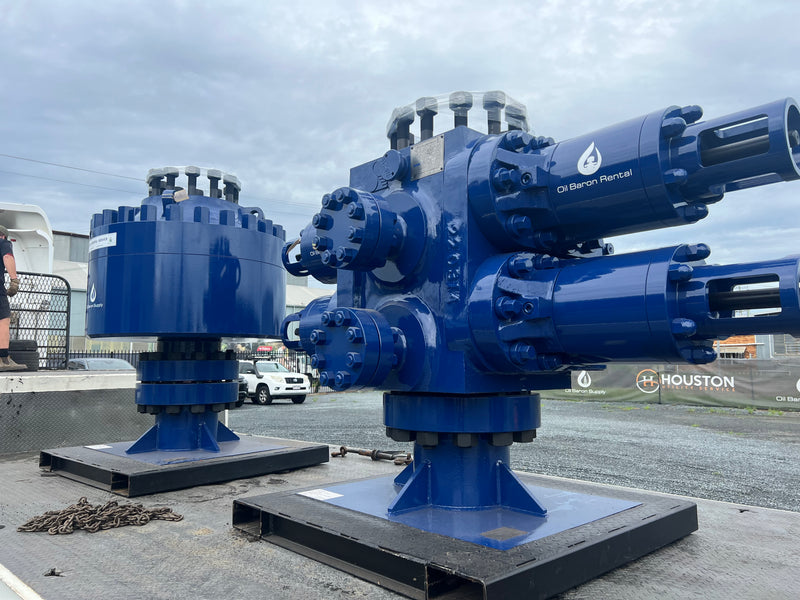Superior Oilfield Rentals Texas: everything companies ask before renting
A Comprehensive Overview to the Numerous Sorts Of Oil Field Equipment and Pipeline Equipment Available
The oil and gas market depends heavily on customized devices for efficient removal and transportation. Numerous sorts of equipment, from piercing rigs to tank, play vital roles in this intricate procedure. Each tool offers unique functions that contribute to overall operational success. Understanding these elements is essential for any individual included in the field. As the industry advances, so also do the modern technologies that sustain it. What advancements are on the perspective?

Drilling Rigs: The Foundation of Oil Exploration
Drilling rigs act as the necessary equipment in the domain of oil expedition, allowing firms to accessibility hydrocarbon books buried deep underneath the Planet's surface. These rigs can be found in numerous kinds, consisting of land rigs, offshore rigs, and mobile units, each designed to operate in particular environments. Geared up with sophisticated modern technology, drilling rigs can permeate geological formations with precision, guaranteeing reliable source removal. The structural honesty and functional capacities of these rigs are important, as they have to stand up to severe conditions and substantial stress. In addition, the option of a boring gear impacts the total job price and timeline, making it an important consideration for oil business seeking to maximize their expedition initiatives and take full advantage of productivity in their operations.
Pumps: Necessary for Fluid Movement
In the oil extraction procedure, the role of pumps is significant, promoting the movement of fluids throughout different stages of manufacturing. Pumps are crucial for transferring crude oil, water, and other liquids from below ground reservoirs to the surface area and afterwards via pipelines to refineries. They come in various kinds, including centrifugal, positive displacement, and completely submersible pumps, each offering details objectives based on the liquid qualities and functional requirements. Centrifugal pumps are frequently used for their performance in high-flow applications, while positive variation pumps stand out in dealing with thick liquids. The selection of pump effects general effectiveness, functional safety, and upkeep prices. Correct selection and upkeep of pumps are crucial for optimizing production and decreasing downtime in oil area operations.
Valves: Managing Flow and Pressure

Shutoffs play a vital role in managing the flow and stress of liquids within oil areas and pipes. Various kinds of shutoffs serve unique applications, each designed to satisfy particular functions fundamental for effective operation - Superior Oilfield Rentals oilfield. Recognizing the features and usages of these shutoffs is important for enhancing system efficiency and safety and security
Types of Valves
Crucial elements in oil area procedures, valves play a crucial role in managing the flow and stress of fluids within pipelines and equipment. Numerous kinds of shutoffs are made use of to satisfy the diverse needs of oil and gas manufacturing. Typical kinds include entrance valves, which provide a straight-line circulation and minimal pressure drop; globe shutoffs, recognized for their strangling capacities; and sphere shutoffs, recognized for their fast on/off control. Furthermore, check valves avoid backflow, while butterfly shutoffs offer a light-weight solution for controling flow. Each shutoff kind is created with specific products and setups to endure the rough conditions often located in oil fields, making certain integrity and efficiency in procedures. Comprehending these types is crucial for reliable system management.
Valve Applications and Functions
While different sorts of valves offer distinctive functions, their main applications focus on managing flow and pressure within oil and gas systems. Shutoffs such as gate, world, and ball shutoffs regulate fluid motion, making sure peak efficiency and security. Entrance shutoffs are generally made use of for on/off control, providing very little flow resistance. Globe shutoffs, on the various other hand, offer exact flow law, making them ideal for strangling applications. Ball valves are favored for their quick operation and tight sealing capacities. On top of that, stress alleviation shutoffs are crucial for preventing system overpressure, safeguarding tools honesty. Overall, the ideal selection and application of valves boost operational efficiency, making certain the trusted transportation of oil and gas via pipelines and processing centers.
Compressors: Enhancing Gas Transportation
Compressors play an important duty in the effective transport of all-natural gas, ensuring that it relocates efficiently with pipelines over long ranges. These devices boost the pressure of natural gas, enabling it to get rid of rubbing and elevation modifications within the pipeline system. In addition, compressors facilitate the harmonizing of supply and need, accommodating fluctuations in intake and production rates. Numerous kinds of compressors are utilized in the industry, consisting of centrifugal, reciprocating, and rotary screw compressors, each offering unique benefits based upon the functional requirements. Routine maintenance of these compressors is necessary to maximize performance and investigate this site reduce downtime, ultimately adding to a trustworthy gas transport network. Their essential function emphasizes the significance of compressors in the total oil and gas facilities.
Storage Tanks: Safe and Reliable Fluid Monitoring
Effective transportation of natural gas depends on different support group, one of which is the appropriate management of tank. These tanks play a crucial duty in safely having liquids, making certain that functional effectiveness is preserved while lessening ecological threats. Created from resilient products, they are designed to withstand high pressures and destructive aspects. Appropriately sized and tactically located, storage containers promote the smooth flow of gas and various other fluids, protecting against traffic jams in supply chains. Routine upkeep and surveillance are crucial to find leaks or architectural issues, promoting security and compliance with regulative criteria. Inevitably, the efficient monitoring of tank is critical for the total stability and integrity of the oil and gas sector's liquid handling systems.
Pipeline Systems: Facilities for Transport
Pipeline systems offer as the foundation of the oil and gas sector, promoting the effective transport of hydrocarbons over substantial distances. These systems include numerous components, including pipelines, shutoffs, pumps, and compressors, all diligently created to guarantee smooth circulation. The materials utilized in pipeline building, typically steel or high-density polyethylene, are chosen for sturdiness and resistance to corrosion. Pipeline networks can cover throughout land and water, linking manufacturing sites to refineries and distribution. Furthermore, advanced modern technology makes it possible for real-time tracking of flow prices and stress degrees, boosting operational effectiveness. The tactical placement of these pipes decreases environmental influence while taking full advantage of source ease of access, consequently playing an essential role in conference power needs globally.
Safety Equipment: Guaranteeing Employee and Environmental Security
The operation of pipeline systems, while vital for energy transport, also provides significant security difficulties for employees and the atmosphere. Security tools plays a considerable role in reducing these threats. Individual safety equipment (PPE) such as headgears, gloves, and non-slip footwear safeguards employees from physical dangers. Additionally, gas discovery systems monitor for leaks, ensuring that dangerous compounds do not posture a threat to personnel or the bordering ecosystem. Emergency shutdown systems are vital for rapidly halting operations during a crisis, preventing possible calamities. Spill control products, consisting of absorbents and barriers, are basic for reducing environmental effect. Overall, investing in all-encompassing security devices is vital for keeping functional stability and shielding both employees and the environment in the oil and gas field.

Often Asked Concerns
Exactly how Do I Pick the Right Oil Field Equipment for My Task?
Picking the right oil field devices involves reviewing project specs, budget plan constraints, and operational demands. Take into consideration aspects such as devices reliability, compatibility with existing systems, and the provider's online reputation to ensure peak performance and safety.
What Are the Upkeep Needs for Oil Field Equipment?
Upkeep needs for oil field equipment consist of routine assessments, you can try here lubrication, and prompt repair services. Operators needs to also stick to producer guidelines, display efficiency metrics, and guarantee compliance with safety and security policies to enhance durability and performance.

How Can I Guarantee Conformity With Environmental Regulations?
To ensure compliance with ecological regulations, firms need to perform normal audits, carry out finest techniques, buy training, maintain correct paperwork, and stay updated on legislation (Superior replacing water line from well to house rentals squeeze tools). Cooperation with ecological firms can additionally enhance adherence to regulations
What Is the Average Life Expectancy of Pipeline Equipment?
The ordinary lifespan of pipeline tools normally varies from 20 to 50 years, relying on aspects such as worldly quality, ecological conditions, and maintenance practices. Normal examinations can significantly influence long life and functional effectiveness.
Just how Do I Safely Transport Oil Field Equipment to Remote Locations?
Moving oil field devices to remote areas calls for careful planning, including path evaluation, securing authorizations, making use of appropriate vehicles, and making certain safety procedures are followed. Proper training and interaction amongst crews are important for effective transportation.